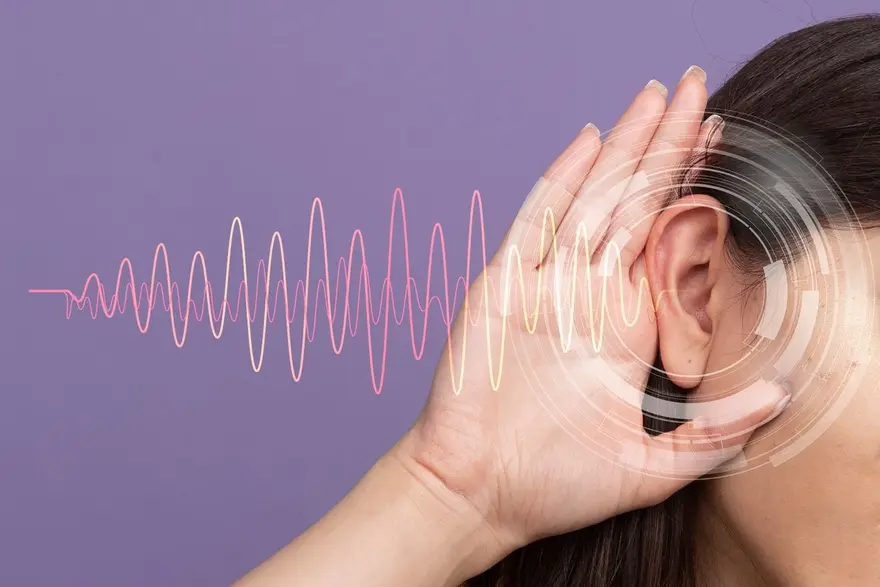Preventive Healthcare
Eating Disorders: Symptoms, Causes, Types and Treatment
2504 Views
0

What is an Eating Disorder?
Most people misunderstand eating disorders. It is because people don't know what eating disorders are and how they affect those suffering from them. Eating disorders are not a diet gone wrong and are a lot more than the desire to lose weight.
Eating disorders are found to be primarily related to disturbances in the way that a person thinks and feels rather than in how they eat. People with an eating disorder often use food to cope with complicated feelings and emotions. While it is possible to treat an eating disorder without hospitalization, treatment involves a team of professionals, such as a psychiatrist, a psychologist, and a registered dietitian.
Why Do You Have an Eating Disorder?
There are many possible reasons why someone might develop an eating disorder. It could be due to genetic, biological, and environmental factors. For example, someone with a family history of eating disorders may be more likely to develop one. And someone who experiences a significant life event, such as trauma or a major life change, may also be more susceptible to developing an eating disorder.
There is no single reason why someone develops an eating disorder. Instead, it is often a combination of factors that contribute to the development of this serious illness. If you or someone you know is struggling with an eating disorder, it is important to seek professional help.
Causes of Eating Disorders
Eating disorders are complex conditions that can have several different causes. In most cases, a combination of biological, psychological, and social factors contribute to developing an eating disorder.
Biological factors that may contribute to eating disorders include genetics, brain chemistry, and hormones. Eating disorders are also more common in people with certain psychological traits, such as low self-esteem, perfectionism, and a need for control. And finally, social factors such as the pressure to be thin or the portrayal of unrealistic body types in the media can also play a role in the development of eating disorders.
Eating disorders are treatable conditions, and with the right help, people can and do recover.
Common Health Conditions Associated with Eating Disorders
Eating disorders are mental illnesses that profoundly impact a person’s health. While most people think of eating disorders as conditions that primarily affect a person’s weight and appearance, they can cause many physical and mental health problems.
Some of the common health conditions associated with eating disorders include:
- Cardiovascular problems.
- Gastrointestinal problems.
- Endocrine problems.
- Immune system problems.
- Neurological problems.
- Psychological problems.
Symptoms of Eating Disorder
There may be physical, mental, and behavioral indicators like:
- An unexpected loss of weight.
- Not eating in public.
- Abdominal pain, cold intolerance, tiredness, or a high degree of energy loss.
- Disinterest in food.
- Dread of gaining weight.
- Binge eating and excessively exercising.
- Missed periods of menstruation.
- Anemia.
- Decreased thyroid function.
- Low amounts of hormones.
- Reduced potassium.
- Low levels of blood cells.
- Dizziness/fainting spells.
- Muscle weakness, receding hair, dry skin.
- Sluggish wound healing.
- A compromised immune system.
Types of Eating Disorders
Eating disorders are mental and physical illnesses characterized by disturbed eating habits. These disorders can cause a range of physical and psychological problems.
There are three types of eating disorders, as follows.
- Anorexia nervosa disorder.
- Bulimia nervosa disorder.
- Binge eating disorder.
Each type of disorder has different symptoms and effects on the body.
Anorexia Nervosa Disorder
Extreme weight loss and a fear of putting on weight are features of anorexia nervosa. Even when they are dangerously thin, individuals with anorexia nervosa frequently mistakenly perceive their bodies and themselves as overweight.
Bulimia Nervosa Disorder
Episodes of binge eating followed by purging are a defining feature of bulimia nervosa. Bulimic individuals frequently experience an eating crisis; thus, they purge to regulate their weight.
Binge Eating Disorder
Episodes of binge eating without purging are the hallmark of binge eating disorder. People with binge eating disorders may be overweight or obese and frequently feel guilty and embarrassed about their eating habits.
Know more about Eating Disorder Tests.
Complications of Eating Disorders
Eating disorders can have substantial repercussions, some of which can be life-threatening, depending on how severe or long-lasting they are.
Examples include:
- Significant health issues.
- Heightened anxiety and depression.
- Suicidal thoughts or actions.
- Problems with growth and development.
- Social and interpersonal issues.
- Drugs addiction.
- Work and academic concerns.
- Death.
How to Treat Eating Disorders
Eating disorders are a severe problem, negatively impacting a person's physical and mental health. There are treatments available for eating disorders, and the best course of treatment will vary from person to person. However, some general tips can help you or a loved one get the treatment you need.
The treatment types for eating disorders include therapy, individual and/or support group counseling, and medication. Depending on the case, treatment can be a combination of any or all. In severe cases, hospitalization may be necessary. With treatment, many people with eating disorders can get better, recover and live healthy lives.
Risk Factors of Eating Disorders
Factors to consider to reduce your risk of developing an eating disorder, like:
- Family history: Changing your mentality and surrounding yourself with others who have healthy eating habits can help, even if the condition runs in your family.
- Additional mental health issues: Work to overcome depression, obsessive-compulsive disorder, or anxiety disorders.
- Dieting and starvation: Starvation and weight loss may alter vulnerable people's brain physiology, which could prolong restrictive eating patterns and make it challenging to re-establish healthy eating habits.
- Succumbing to stress: It raises the risk of developing an eating disorder.
When to Contact a Doctor?
It might be challenging to control or recover from an eating disorder alone. Your life could essentially be taken over by eating problems. Seek medical attention if you are dealing with any of these issues or believe you know someone with an eating disorder. Talk to a doctor or mental health professional. They can help you assess the situation and make a treatment plan.
Conclusion
Eating disorders are not just dieting gone wrong but are serious psychological disorders. It is essential to understand the causes and the available treatment. This blog hopes to de-stigmatize eating disorders and provides information on the different eating disorders to help people suffering from this life-threatening condition.























 WhatsApp
WhatsApp